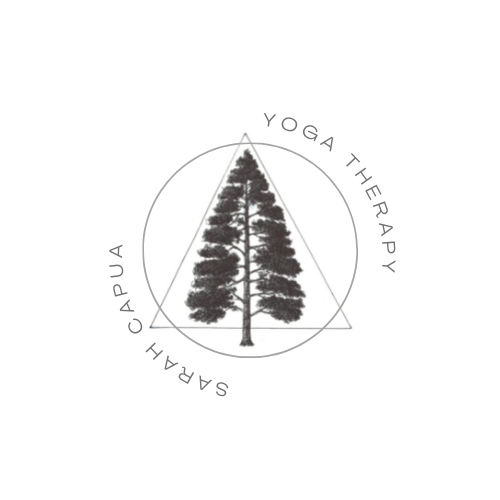Misunderstanding and Discerning our Stories
/Dear Stephanie,
I’ve been thinking lately about practice as a path toward understanding oneself. In the yoga sutras, an essential part of the recommended path of yoga is self study. For me this is one of the most beneficial aspects of awareness practices, and, sometimes this feels like a problematic goal. That topic could turn down a lot of different roads (maybe one to come back to in future posts), but one of them is how does self study help us to understand our reactions to feeling misunderstood.
What is the feeling of being misunderstood? The phrase feels like a remnant from teenage journal scrawls, but I wonder if it is a feeling we experience more often than we realize. I think feeling misunderstood can often get interpreted as many other things, mainly as some else’s misconduct toward us. The sea has suddenly gotten rocky, and it’s because someone in our life has done the wrong thing toward us. And while that may be true, the feeling of having had connection and then that connection misfiring I think is an essential part of that equation, the part that we might look at less closely.
And when we feel misunderstood, what do we do? We formulate a story, specifically one which quiets the feelings we experienced in our interaction and amplifies a position which puts us above the relational meat of the conversation. We build up the part of the conversation which is about our identity; the why about what you don’t understand about me, and the who I am which you don’t see or makes what you are saying false. The more we attach to ideas about ourselves and who we are, the more we separate. We build up our identity in our own minds and use our imagination to build up the identity of the other, and as we do we get further away from what we are feeling. And what might those feelings be? They might be “I love you; I depend on you; I want you to think well of me; your opinion matters to me; you have hurt me.” They might be miles away from the defensive identity we’ve built. We fight misunderstanding with misunderstanding.
No matter how intuitive we might be about what is going on around us, when it comes to others at some point we have to accept that we are merely imagining what someone else is thinking, feeling, or intending until we actually open ourselves enough to them to ask. And asking cannot be one-sided; when we demand an explanation without giving anything in return, defensiveness won’t dissipate. If we really want to clear up misunderstanding, we have to offer the heart of our own discomfort in exchange.
What role do you think practices that promote self study can have in illuminating connection and addressing misunderstanding? What does it need to touch?
Deep bows,
sarah
Dear Sarah,
Such an important and prevalent problem you have highlighted here. So often, the stories our minds make up about us run our lives. Over time, the mind develops a script that runs & reruns themes that we have (consciously or compulsively) accepted as essential to who we are, what other people are like, and how this world works. Concepts sourced from our familial upbringing, personal psychology, and societal norms & conditions inform these recurring themes. The stories we subscribe to help us feel more familiar and comfortable with our orientation to reality - even when those stories cause suffering. So, we face the world with an armor of fixed ideas about “how it is” so we can feel more capable of handling potential threats in the unknown.
What you are bringing up is when someone else’s script doesn’t jive with our own - a blip in “the matrix” of our story that can create cognitive dissonance. Self study is, to me, the best route to reconcile this dissonance. Practices that involve self study offer an essential framework for us to deconstruct our stories and realize the truth they are obscuring. When we engage in a practice that teaches us about fundamental principles of humanity, of consciousness, and of existence, we have the opportunity to recognize the patterns of our stories in the paradigms of those principles, as well as realize aspects of our true nature, beyond the stories.
I think both sides of this coin are equally important. A practice of self study should honor the stories that are the history, memories, and lessons that have “made us who we are” as well as the underlying truth of pure energy / awareness / presence that is our essence. Developing the capacity to discern the story from the essence and to cultivate a balance of the two is the ultimate benefit of this kind of work. We then begin to actualize this discernment in our relationships with others - recognizing when we are protecting ourselves with a story and opting to go off-script, to offer our pure presence instead of the story, and see what happens.
This is challenging because our minds are storytelling machines - and we love our stories! We may fear that relinquishing our story will not only expose the vulnerability beneath its armor, but also rob us of the things that are so important to us about who we are. The truth is that by dropping our story, we open ourselves to the co-creation of a bigger story - a new reality beyond anything we could’ve ever dreamed up alone. As awkward as it may feel at first, when we allow ourselves to dwell in the thick, slow, dynamic, pulsating feeling of really just being with another being, listening for the resonance of their pure presence, that vulnerability --the longing for connection at the root of all our stories-- can be satisfied, in a single moment.
in Thanks & Love,
Stephanie

